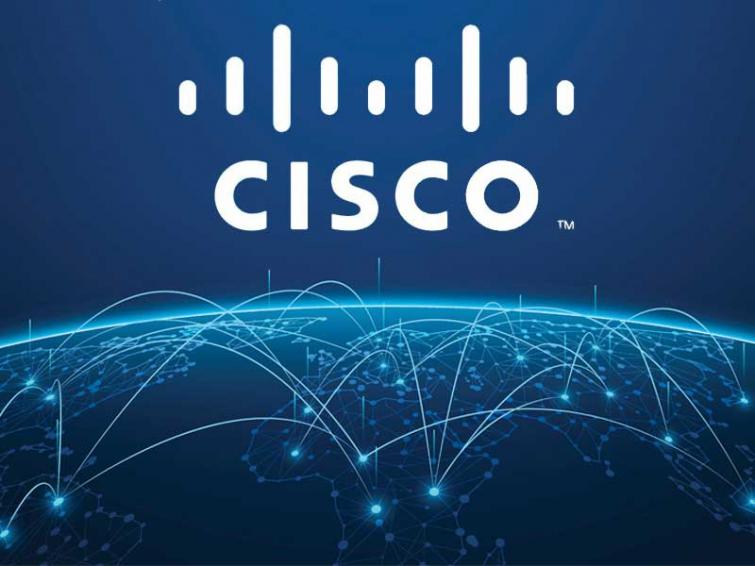
Prepaway - Cisco Certification Pathway: What Credentials Can You Choose?
Cisco is focused on communications and networking products and services. As a matter of fact, the organization is best known for its routing and switching products, which are concentrated on directing data, video traffic and voice across different networks around the world. In addition to this, Cisco also provides storage networking, tele-presence and collaboration, applications for integrated communications.It also offers a wide collection of products and services from basic product support to full solutions for Cloud management and data centres.
In order to keep the IT professionals abreast of the development within its bouquet of products and services, there is a need to develop knowledge, skills and expertise needed to support the products of Cisco and solve the technological problems of customers. The solution to this is to take the specialists working on the Cisco products and services through the Cisco Career Certification program. This program starts from the Entry level to the Associate level and all the way to the Professional and Expert certification levels. There is also the Architect level, which is reserved for specific specialization areas. To earn the Cisco credential, the candidate will be required to pass one or more exams. The majority of the tests offered by Cisco are administered through Pearson VUE.
Highlights of Cisco certification program
Cisco has a wide range of certifications designed for the professionals working with its products and services. There are various credentials and career paths offered by Cisco. However, its two major paths are focused on network design and network operation.The Cisco networking certificate ladder starts with the entry-level credential, CCENT and then progresses to CCNA, CCNP and finally to CCIE. For those specialists who are design oriented, the typical certification path will be CCENT, followed by CCDA, CCDP, CCDE and culminating in CCAr. There are some specializations under the Cisco certification programs. These certificates validate the skills of professionals in certain Cisco technology, including voicemail and messaging, as well as data centre application services.
The specializations under Cisco are generally categorized under two groups. There are groups focusing on digital transformation experts and on technical specialists. Under these two groups, there are at least 18 specializations that you can choose from. To earn any of the certifications, it is required that you pass one or more exams. There are also some credentials that presupposethat you meet some other prerequisites to earn them. The Entry, Associate and Professional levels of certificates are valid for a period of three years. CCIE is valid for only two years while the CCAr certification is valid for a period of five years. For your certificate to remain current, you will need to recertify by writing and passing the required recertification test, oryou can progress to the next level in the certification hierarchy.
To understand the details of Cisco credentials better, it is important to explore the various certification paths.
• Entry-level certifications
There are two entry-level credentials under the Cisco certification program: CCENT (Cisco Certified Entry Networking Technician) and CCT (Cisco Certified Technician). There are no prerequisites required to earn the CCT or CCENT certificates. However, the students will need to pass one exam to earn their credential. A CCT professional functions onsite at the customer locations, identifying issues, revamping or replacing network equipment. The individual with this certification can choose one of the different specialty tracks, including Routing and Switching and Data Center.A CCENT certified specialist is equipped to install, troubleshoot and maintain small networks or an aspect of enterprise network and execute basic network security. This credential is a requirement for some CCNA and CCDA certifications.
• Associate-level certifications
They include CCNA and CCDA. To earn either of these certifications, you need to pass one or more exams depending on your preferred specialization. CCNA (Cisco Certified Network Associate) evaluates fundamental skills and knowledge in installing, troubleshooting and supporting wireless and/or wired networks. The certification paths you can choose include Cloud, Cyber Ops, Collaboration, Data Center, Security, Industrial, Routing and Switching, Wireless and Service Provider. The prerequisite for CCNA depends on the certification path you have chosen.CCDA (Cisco Certified Design Associate) is designed for those professionals who have the skills to design basic wireless and wired networks and integrate security as well as voice solutions. To earn the CCDA certificate, you must have CCENT, CCIE, or CCNA Routing & Switching.
• Professional-level certifications
There are two major credentials under this level: CCNP (Cisco Certified Network Professional) and CCDP (Cisco Certified Design Professional). To earn the CCDP certification, the candidates must write three different exams. They must also have CCDA and CCNA Routing & Switching, or any of CCDE or CCIE. All CCNP credentials required four exams to be passed, with the exception of CCNP Routing and Switching, which needs three certification tests. Requirements for earning the CCNP certificates include CCNA or any CCIE. CCNP also accepts the CCIP certificate as a requirement. The CCNP credential is designed for those specialists who deploy, plan and troubleshoot wide area networks and local networks. It recognizes proficiency in deploying and designing scalable networks and multiple layer switched networks.
• Expert-level certifications
The expert-level certifications cover two main certificates: CCIE (Cisco Certified Internetwork Expert) and CCDE (Cisco Certified Design Expert). There is no prerequisite for earning these credentials, but you must pass a written exam and a tough practical test. CCIE is the career highlight for many networking professionals. The individuals with this certification have displayed knowledge and skills of Cisco network solutions and products in at least one of the CCIE paths, which include Data Center, Collaboration, Provider and Wireless, Routing and Switching. The CCDE certificate recognizes those professionals who have displayed proficiency in designing infrastructure solutions for big enterprise environment, including business, operational and budgetary aspects of projects.
• Architect-level certification
The final level of the Cisco certificate program is Architect. The Cisco Certified Architect credential is like the Ph.D. of Cisco program because it is the highest level offered by the organization. CCAr validates the skills and knowledge of senior network infrastructure architects. It is intended for those specialists who can design and plan the IT infrastructure supported by business strategies.
Conclusion
These are different certification programs offered by Cisco. It is important that you understand your career path so that you choose the credential that aligns with your career goals.
Support Our Journalism
We cannot do without you.. your contribution supports unbiased journalism
IBNS is not driven by any ism- not wokeism, not racism, not skewed secularism, not hyper right-wing or left liberal ideals, nor by any hardline religious beliefs or hyper nationalism. We want to serve you good old objective news, as they are. We do not judge or preach. We let people decide for themselves. We only try to present factual and well-sourced news.







